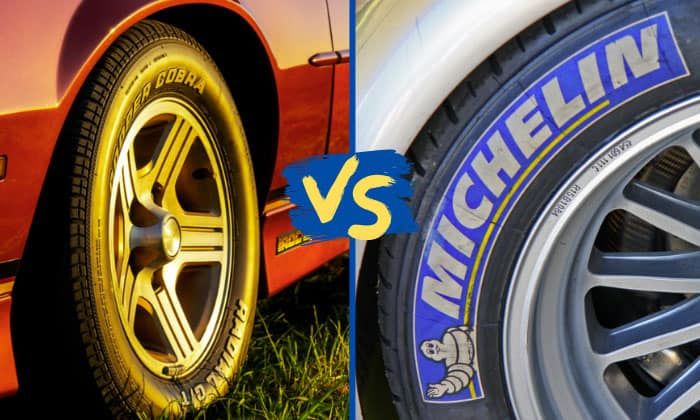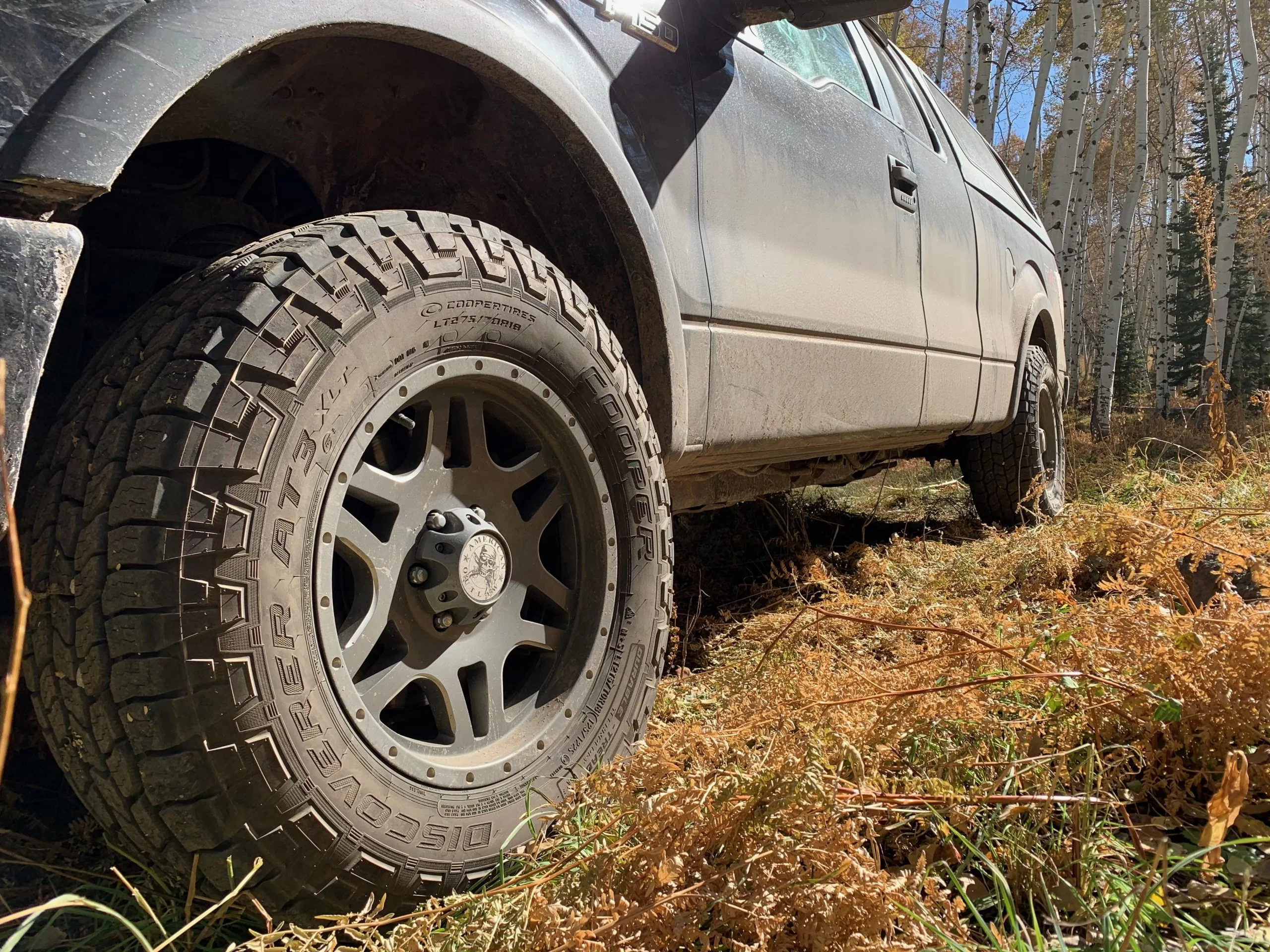


When it comes to choosing the right tires for your vehicle, the decision can significantly impact your driving experience, safety, and overall performance. Two prominent names in the tire industry, Cooper and Michelin, offer a wide range of options catering to different driving needs and conditions. In this comprehensive article, we will delve into the key aspects that differentiate these two brands, providing you with valuable insights to make an informed choice.

Tires play a crucial role in ensuring a smooth and safe ride, making it essential to select the right ones for your vehicle. Cooper and Michelin have established themselves as reputable tire manufacturers, each with its unique strengths and specialties. This article aims to provide an in-depth comparison of these two brands, covering various factors such as tire types, performance, value, and customer feedback.
Cooper and Michelin manufacture a wide range of tire types to cater to different driving needs and conditions. Here's a breakdown of the categories they excel in:
| Cooper Tires | Michelin Tires |
|---|---|
| All-terrain (Discoverer AT3, Evolution MT) | Passenger car (Primacy Tour A/S) |
| Truck/SUV | Performance (Pilot Sport 4S) |
| Winter (X-Ice Snow, Latitude X-Ice) |
Cooper is renowned for its exceptional all-terrain and truck/SUV tires, designed to tackle various off-road conditions while providing a comfortable ride on paved surfaces. The Discoverer AT3 and Evolution MT are among their flagship products, offering superior traction and durability for adventurous drivers.
Michelin, on the other hand, excels in the passenger car and performance categories, with tires like the Primacy Tour A/S and Pilot Sport 4S. These tires are engineered to deliver exceptional handling, responsiveness, and grip, catering to driving enthusiasts and those who prioritize agility and precision. Additionally, Michelin offers a comprehensive lineup of winter tires, including the highly-rated X-Ice Snow and Latitude X-Ice lines, ensuring optimal performance in harsh winter conditions.
When it comes to overall performance, Michelin tires generally outshine their Cooper counterparts in several key areas. However, Cooper tires also have their strengths, particularly in terms of ride comfort and affordability.
Michelin tires are known for their superior traction and grip in various conditions, including dry and wet surfaces. Their advanced silica-based tread compounds and cutting-edge technologies, such as EverGrip and Helio+, contribute to their exceptional cornering abilities and enhanced safety.
Michelin's performance-oriented tires are designed to provide exceptional handling and steering responsiveness, making them a popular choice among driving enthusiasts and those who prioritize agility and precision. The tires' construction and advanced technologies allow for precise steering inputs and improved vehicle control, even in challenging driving situations.
While Michelin tires excel in performance aspects, Cooper tires often offer a more comfortable and quieter ride, especially in their all-terrain and truck/SUV lineups. These tires are engineered to absorb road imperfections and minimize noise levels, providing a serene and relaxed driving experience, particularly on long journeys or rough terrain.
Both Cooper and Michelin offer competitive treadwear warranties, ensuring that their tires provide long-lasting performance. Here's a comparison of their typical tread life warranties:
| Brand | Treadwear Warranty Range |
|---|---|
| Michelin | 45,000 - 90,000 miles |
| Cooper | 50,000 - 65,000 miles |
These warranties provide peace of mind and help consumers get the most value out of their tire investment.
Michelin's advanced tread designs and low rolling resistance technologies can contribute to improved fuel efficiency, potentially saving drivers money at the pump. By reducing the amount of energy required to keep the tires rolling, Michelin tires can help optimize fuel consumption, making them an eco-friendly and cost-effective choice for environmentally conscious drivers.
One of the most significant differences between Cooper and Michelin tires is their pricing. Michelin tires are generally more expensive, often costing 30-50% more than their Cooper counterparts in the same category.
Here's an example of typical pricing for a set of four tires for a midsize sedan:
| Tire Brand and Model | Approximate Price Range |
|---|---|
| Michelin Primacy Tour A/S | $600 - $800 |
| Cooper CS5 Grand Touring | $400 - $600 |
While Michelin's premium pricing reflects their advanced technologies and performance capabilities, some consumers may find Cooper tires to be a better value proposition, especially if they prioritize affordability over outright performance.
Both Cooper and Michelin offer a wide range of tire sizes to accommodate various vehicle types, from compact cars to heavy-duty trucks and SUVs. However, Michelin's selection tends to be more extensive, particularly in the performance and ultra-high-performance categories.
Michelin offers tires in sizes up to 24 inches, catering to high-end sports cars and luxury vehicles.
Cooper's largest tire size is typically around 20 inches.

When it comes to customer reviews and satisfaction ratings, both Cooper and Michelin perform well, but Michelin generally has an edge.
On popular tire review sites like TireRack and Consumer Reports, Michelin tires consistently receive higher ratings for performance, treadwear, and overall satisfaction.
Customers praise Michelin's exceptional grip, handling, and durability, making them a top choice for those seeking the ultimate driving experience.
However, Cooper tires are often praised for their value proposition and decent performance for the price point.
Many customers report being pleasantly surprised by the quality and longevity of Cooper tires, especially in the all-terrain and truck/SUV categories, where they offer a cost-effective alternative to premium brands.
In the battle between Cooper and Michelin tires, there is no definitive winner – the choice ultimately depends on your driving needs, budget, and priorities.
If you prioritize outright performance, handling, and safety, and are willing to invest in premium tires, Michelin is an excellent choice. Their advanced technologies, superior grip, and responsive handling justify the higher cost, especially for performance-oriented vehicles or those driven in challenging conditions.
On the other hand, if you're on a tighter budget or prioritize value and a comfortable ride over outright performance, Cooper tires can be an attractive option. They offer decent performance, good treadwear warranties, and a more affordable price point, making them a popular choice for daily drivers and those who don't push their vehicles to the limit.
For all-terrain and truck/SUV applications, Cooper's Discoverer and Evolution lines are highly regarded and can be a more cost-effective alternative to Michelin's LTX and Latitude offerings, while still providing reliable off-road capabilities.
Ultimately, the decision between Cooper and Michelin tires should be based on your specific vehicle requirements, driving preferences, and budget constraints. Both brands offer quality products, but cater to different segments of the market, ensuring that there is an option to suit every driver's needs.
Michelin tires generally offer better performance in areas like traction, handling, and noise reduction, while Cooper tires are often more affordable. However, Cooper has some highly capable off-road and all-terrain tire models.
Cooper tires tend to provide better value for money, as they are typically more affordable than Michelin tires while still offering decent performance and durability.
Michelin tires usually have longer treadwear warranties, ranging from 45,000 to 90,000 miles, while Cooper's warranties are typically between 50,000 and 65,000 miles.
Cooper has a strong reputation for its all-terrain and off-road tire models, such as the Discoverer AT3 and Evolution MT, which are designed for demanding off-road conditions.
Yes, Michelin's advanced tread designs and low rolling resistance technologies can contribute to improved fuel efficiency compared to some other tire brands.
Michelin's winter tire lineup, including the X-Ice Snow and Latitude X-Ice, is generally regarded as superior in terms of winter traction and performance.
Michelin tires are often praised for their quieter ride and lower noise levels, thanks to their advanced tread designs and construction.
Michelin's Pilot Sport and Pilot Super Sport lines are widely regarded as some of the best high-performance tires on the market, making them a popular choice for sports cars and high-end vehicles.
Some users have reported issues with balancing Cooper tires, particularly older models, while Michelin tires are generally praised for their ease of balancing.
Michelin offers a more extensive selection of tire sizes, particularly in the performance and ultra-high-performance categories, catering to a broader range of vehicles.

Sarah isn't your average gearhead. With a double major in Mechanical Engineering and Automotive Technology, she dived straight into the world of car repair. After 15 years of turning wrenches at dealerships and independent shops, Sarah joined MICDOT to share her expertise and passion for making cars run like new. Her in-depth knowledge and knack for explaining complex issues in simple terms make her a valuable asset to our team.









